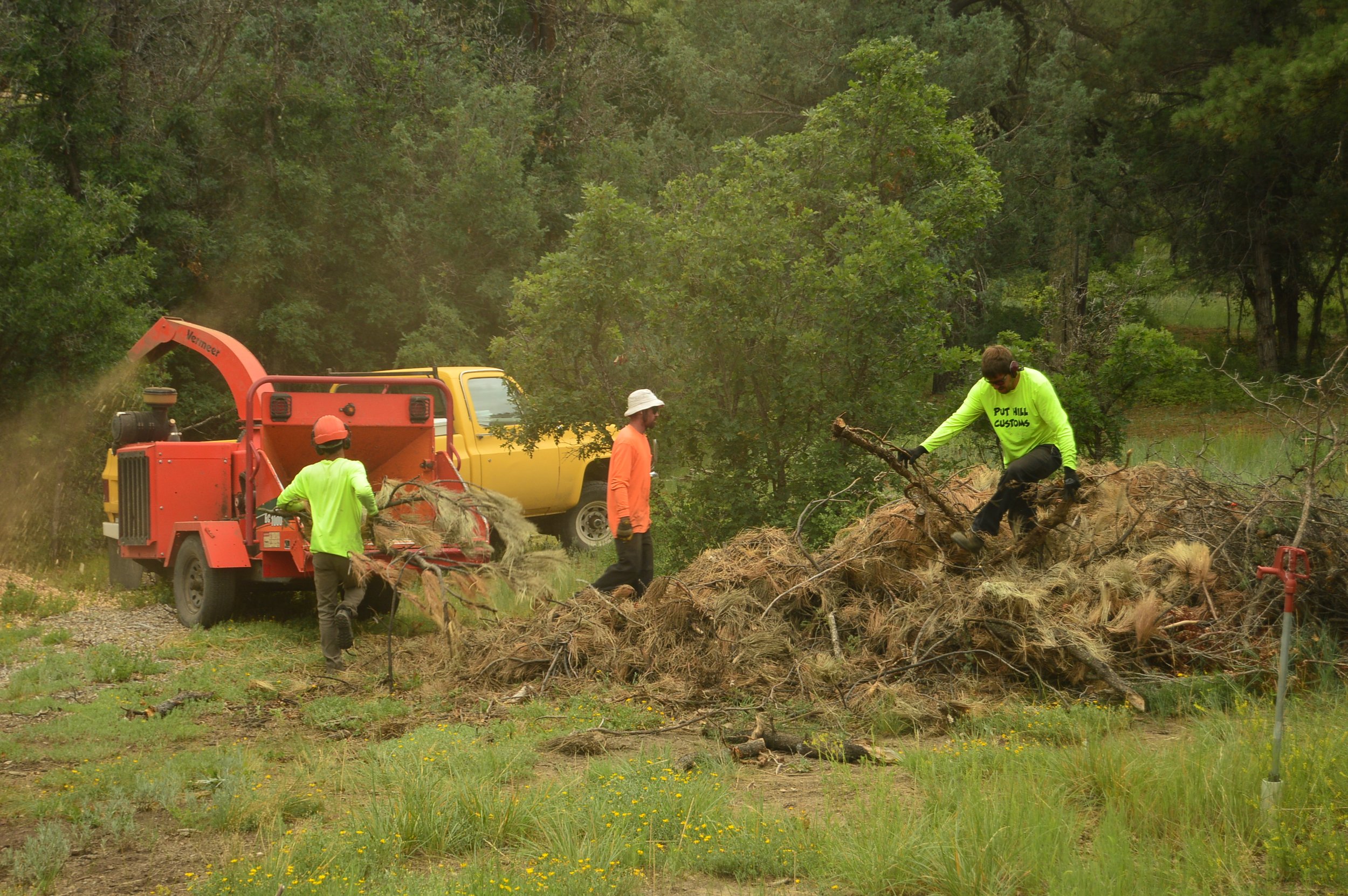
Wildfire Adapted Programs
Wildfire Adapted Partnership offers a variety of incentive programs to support residents with slash removal and their planning and mitigation efforts. Some programs are open to all residents in the five-county area of southwest Colorado and others are only for our Neighborhood Ambassadors and their communities.
Home Wildfire Risk Site Assessment
Have a Wildfire Adapted Partnership coordinator visit you and do a Free wildfire risk assessment of your home. Our coordinators will walk around your property with you and discuss what steps you can make to be better prepared for wildfire.
You will receive a write up of everything you need to know to take the next steps in your wildfire preparedness journey as well as important materials to help guide you in your efforts. These visits generally take 60-90 minutes. Click here to sign up for a Home Risk Site Visit.
Defensible Space Cost Share
You may be eligible for cost share assistance to reduce vegetation that makes your home vulnerable to wildfires. To find out how to make your home more fire safe and what resources are available to support forest thinning work on your property, contact your Wildfire Adapted Partnership county coordinator.
The Cost Share program begins with a free home risk site visit where a Home Ignition Zone specialist will provide a wildfire risk assessment and will mark trees for removal if you choose to pursue the defensible space cost-share program at that time.
Chipper Rebate
This program encourages the chipping of slash from flammable vegetation conducted on any privately-owned property in La Plata, San Juan, Montezuma, Archuleta or Dolores counties in Colorado. Wildfire Adapted will reimburse the homeowner 50% of the cost to rent or hire a mitigation company to provide chipper services up to $250.
You can send an application to chipper@wildfireadapted.org or print a paper application to mail.
Community Programs
Community Wildfire Assessment
For communities that are new to Wildfire Adapted, Wildfire Adapted and 1-2 of our partners (BLM, CSFS, or local fire department) do either a drive through or walk through of the neighborhood with the Wildfire Adapted Ambassador and one or more residents. This is typically a step taken if a community is looking to do a Community Wildfire Protection Plan.
The community will receive a written report, complete with pictures, and 4-6 recommendations to get the community started on their wildfire preparedness efforts. There is no cost to homeowners other than coordinating with HOA and neighbors.
Who’s Eligible: Communities with Neighborhood Ambassadors
Contact: Your County Coordinator to arrange for a Community Assessment.
Community Wildfire Protection Plan (CWPP)
The Community Wildfire Protection Plan (CWPP), as described in the Healthy Forests Restoration Act, brings together diverse local interests to discuss their mutual concerns for public safety, community sustainability and natural resources. It offers a positive, solution-oriented environment in which to address challenges such as:
Local firefighting capability
The need for defensible space around homes and subdivision
Where and how to prioritize land management on both federal and non-federal land
Even if your community has an active CWPP, these documents typically need updating every 10 years. If your community is interested in creating or updating your CWPP, please email kfelch@wildfireadapted.org to begin the process. Check out the Colorado State Forest Service here for more information about CWPP’s and how they can benefit your community.
Community Mitigation Grants
The Community Mitigation Grant Program offers neighborhoods funding to do larger community wildfire mitigation activities.
Improving access/egress of neighborhood roadways
Common space treatments
Community shade fuel breaks
This funding is only available to communities that have an active neighborhood ambassador, who will be responsible for writing the scope of work and getting the contractor bid. Upon successful completion of the project, WAP can off-set mitigation costs depending on funding availability. All projects will be inspected by Wildfire Adapted Partnership and Colorado State Forest Service (CSFS) upon completion. Residents must provide at least a 25% cash match.
Upon completion of the project, the Neighborhood Ambassador is required to make a short presentation at a Wildfire Adapted Fire Council meeting to discuss their project and lessons learned and provide before and after pictures.






